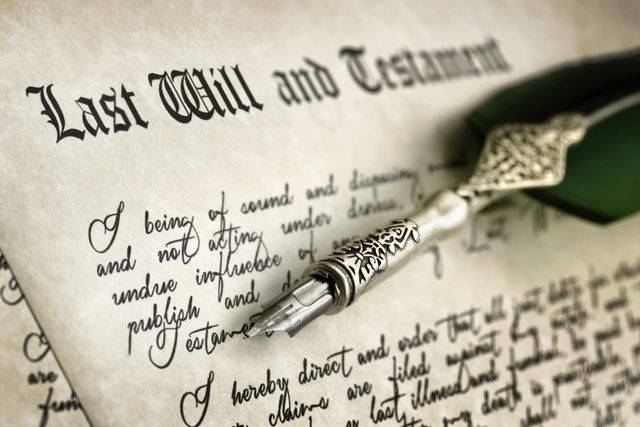Estate Planning allows you to:
- Designate who gets your estate (everything you own) in the event of your expected or unexpected death.
- Plan for the welfare of your minor children or beneficiaries with special needs.
- Plan for a situation where you become incapacitated and unable to handle your own financial affairs.
- Plan for a situation where you are unable to communicate your wishes about medical treatment.
Justin Caruthers is passionate about helping people understand the importance of estate planning and putting plans in place now rather than later. His #1 priority is understanding your goals regarding your estate plan, taking into consideration your family’s needs and any special situations, then implementing a customized plan that meets your needs.
Estate Planning Documents
With proper Estate Planning documents in place, you can designate who gets your estate upon your passing, rather than allowing state law to make that determination, which may result in an outcome you would not have wanted. Depending on your situation, this can be accomplished with a will, a trust, or a combination of both.
All offerings include a self-proving will specifying an independent administration, a no contest clause, and formal will execution/signing. Testamentary trusts and Living Trusts are also available.
Transfer on Death Deed (TODD)
A Transfer on Death Deed (TODD) is another estate planning document that can be used in conjunction with a will or trust. An individual who owns an interest in real property located in Texas can make a TODD. With a TODD, a property owner can designate a beneficiary to transfer property interest without the need for probate. Just like with a payable on death designation on a bank account or a beneficiary designation on a life insurance policy, a TODD does not create any property interest in the beneficiary until the owner dies. The owner retains interest, rights, and control over the property until death, including the right to transfer, sell, or encumber the property.
Other Planning Documents
In addition to wills and/or trusts, executing the following documents is strongly recommend as they allow you to plan for a situation where you become unable to handle your own affairs or communicate your wishes while living.
- Statutory Durable Power of Attorney: Gives the person named as your agent the power to make decisions about your property and financial matters when you are unable to do so.
- Medical Power of Attorney: Allows you to designate another person as your agent for making health care decisions on your behalf if you become incompetent
- Directive to Physicians (Living Will): Allows you to state your wishes regarding the provision, withdrawal or withholding of life-sustaining treatment in the event of a terminal or irreversible condition
- Declaration of Guardian: A legal document where you tell the court who you want to serve as your guardian if there is ever a guardianship proceeding for you. You can also designate a guardian for minor children. There are two types of guardians: guardian of your estate, and guardian of your person.
- HIPAA Release: A HIPAA authorization is a detailed document that gives entities like doctors’ offices and insurance companies permission to share your health care information with someone that you choose. The Health Insurance Portability and Accountability Act (HIPAA) was written to prevent health care providers and insurance companies from sharing your private health care information, but a HIPAA authorization allows them to share your information with someone that you trust.
Fees
Flat fee packages are available, and an hourly rate applies for anything that does not fit package requirements. A list of offerings with prices is available upon request.
Next Steps
To get started on your estate plan, contact the firm for an estate planning questionnaire where you will be asked to provide information needed to customize a plan that fits your needs.


